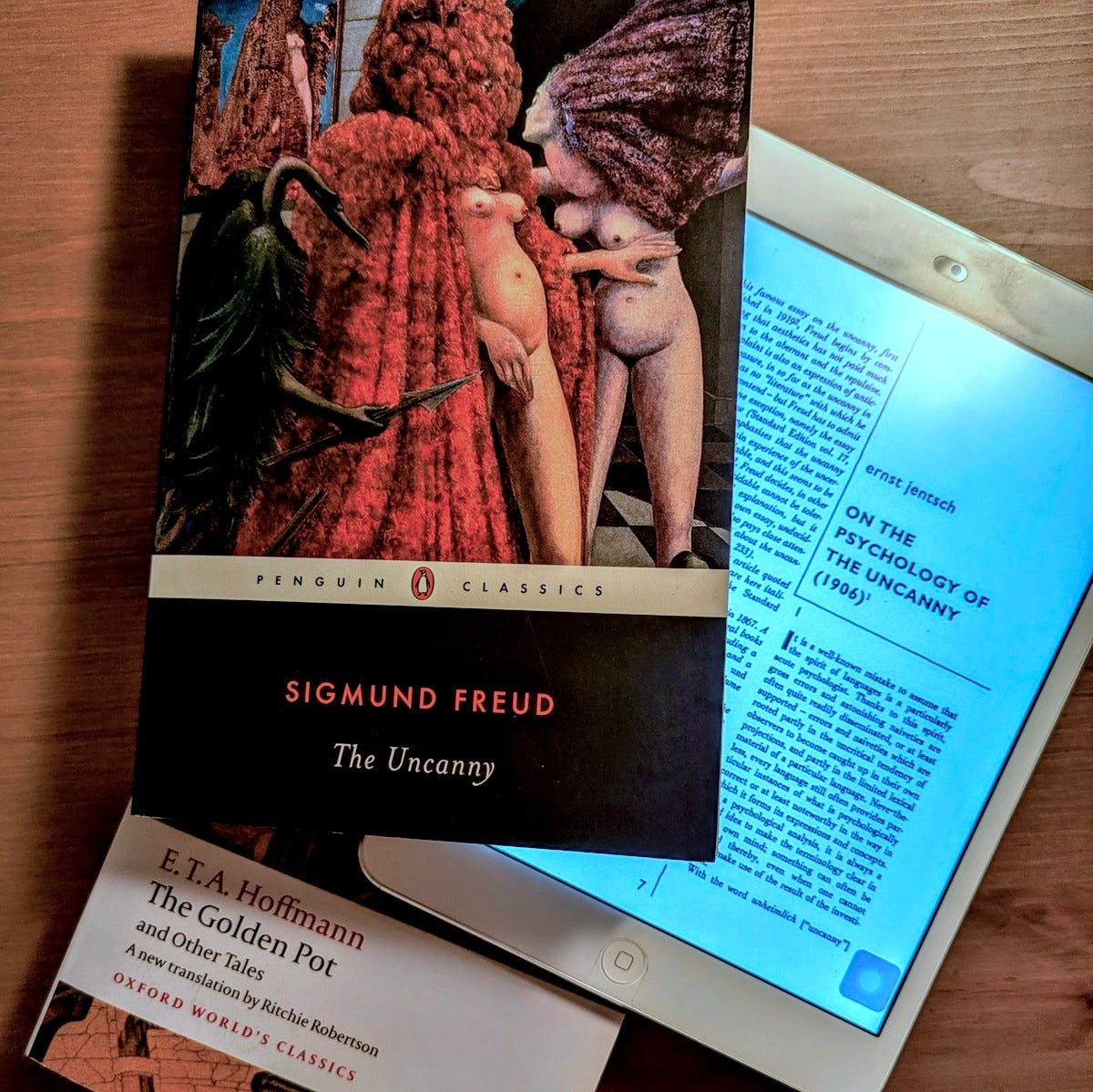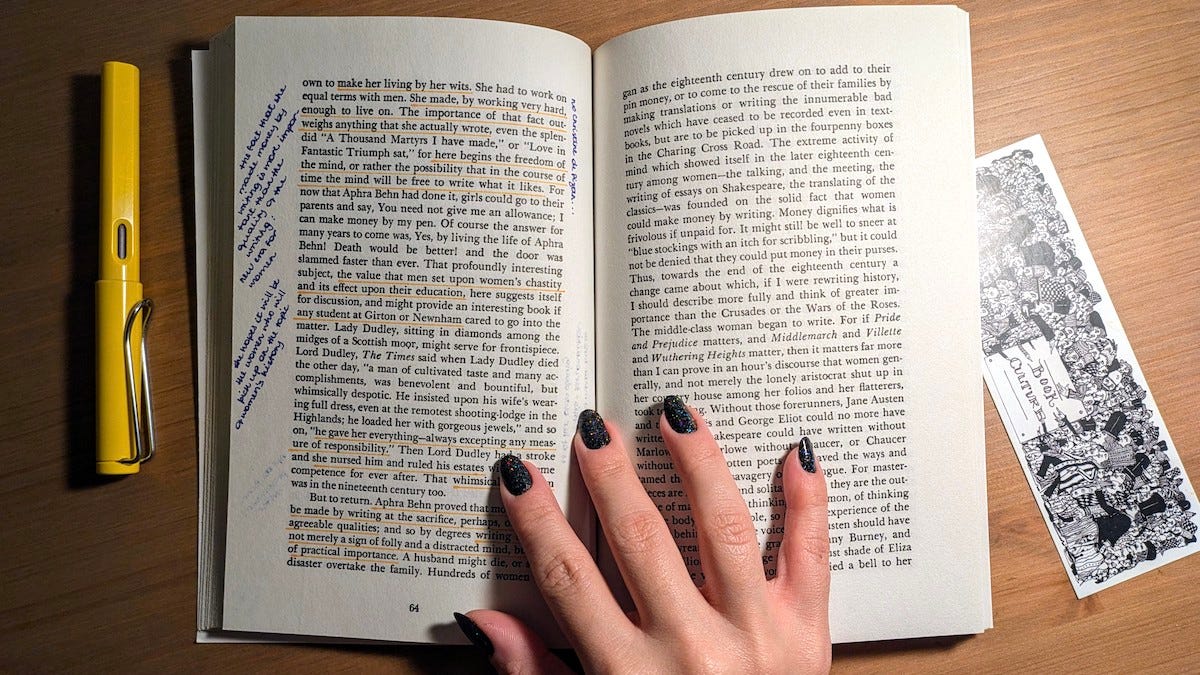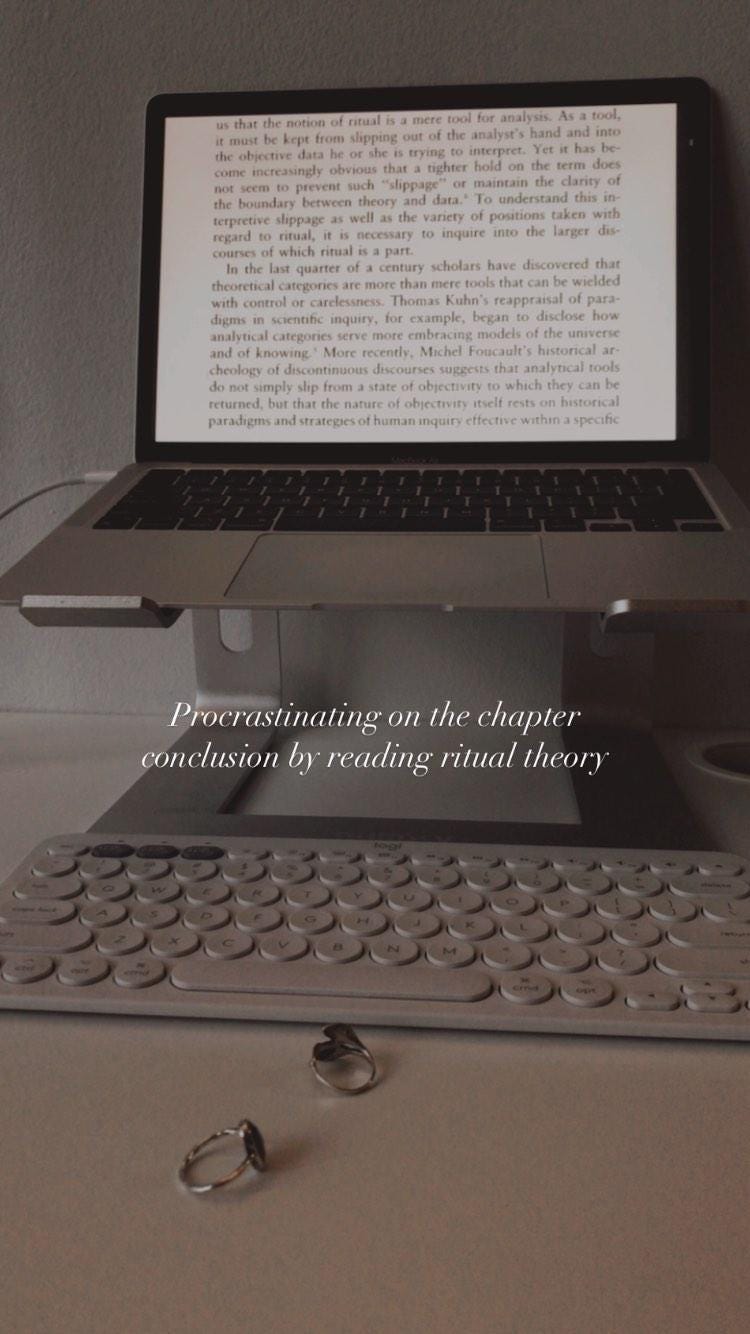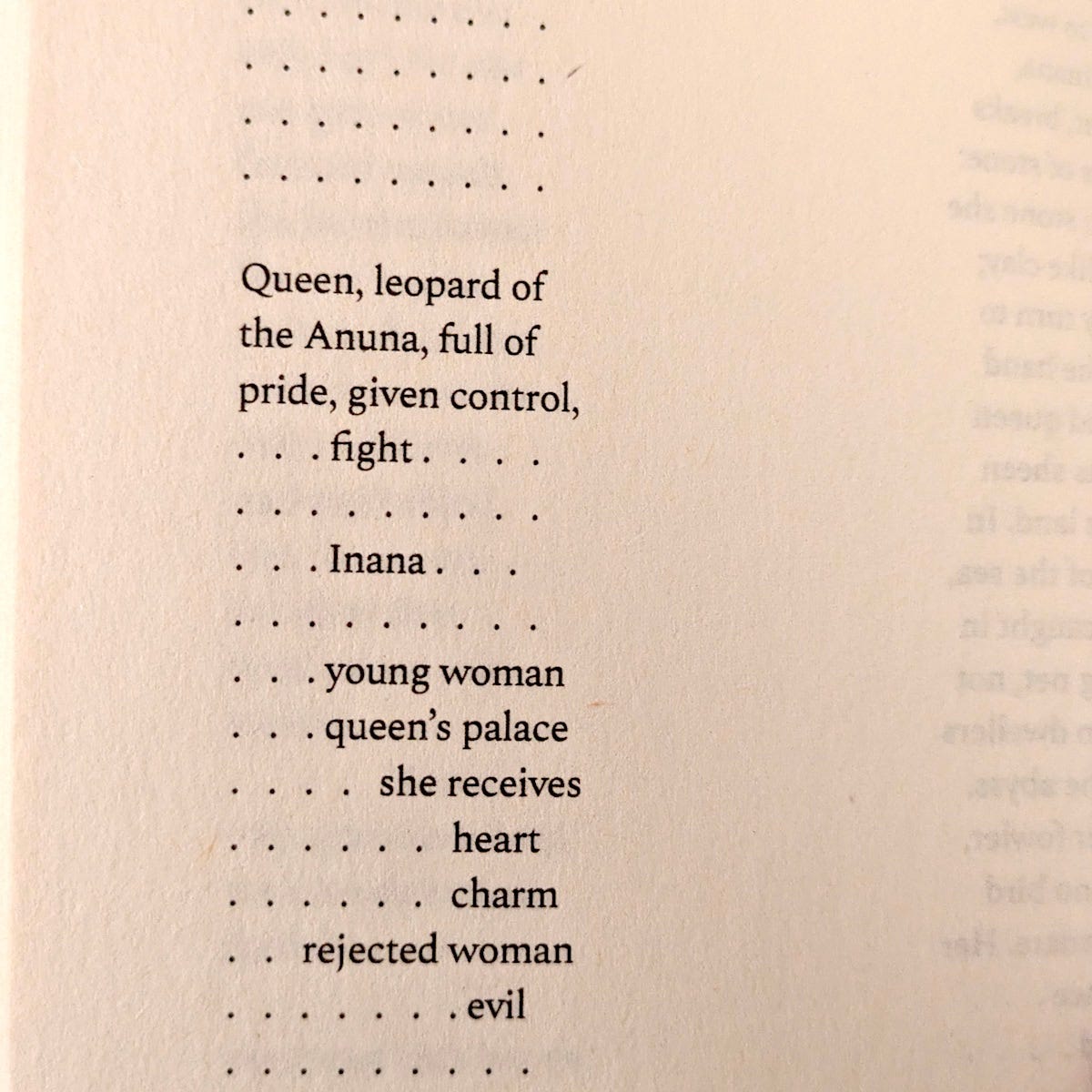“What are you writing next?” X asked, unknowingly poking at my discomfort. “Are you writing about A Room of One’s Own?”
I was not.
I admit that this month I read Virginia Woolf’s classic essay for the first time (after reading Three Guineas earlier this year), and not in small part because I have recently purchased a good number of essay collections that are clearly inspired by, if not directly riffing on, it. And I wanted to know what they were referring to before jumping in.
That’s my recurring fault, one of those bad habits that are really hard to break because they feel, to a certain level, foundational: I would much rather chase down references, reading backward into bibliographical reference after bibliographical reference, than put my own words on the page. That whole thing about reading being an important part of writing? I grabbed it and ran with it; I still do.
Because it is October and I like to keep my readings somewhat thematic, I decided to take the plunge and face one of my worst fears, so I picked up Freud’s The Uncanny (trans. David McLintock) to read. Every single person who recommended it to me, either actively or passively, should know that they were right and it is a fascinating piece of writing that has made a nest in my head.
You should also know that I am now in a rabbit hole, reading Hélène Cixous reading Freud and with Otto Rank’s study on doubles lined up for next. Maybe I’m just invested, maybe I’ve just found a nice little outlet through which to exercise my research compulsion (maybe Freud would have a word about my use of “compulsion”), maybe it’s just that little itch that I have mentioned before with Rancière and that has made its come back. In any case, I feel like I am somewhat back into an intellectually curious groove and I should probably ride it out, even if it leads nowhere. Sometimes, it really is about the road, not the destination.

And I find it interesting to see myself enjoying this road of Theory™ after so many years of struggling with it. Perhaps, at some point, I convinced myself I didn’t like the whole idea of Theory™, even though my stories on Instagram from the last two years of dissertation writing are full of photos of me sneaking around the actual writing by reading theoretical texts. At one point, I spent maybe more than a week reading about Ritual Theory™ because I wanted to check…something? I am pretty sure it didn’t even make it into a footnote, but it seems like I was having fun at the time. And I think I could have been, if only I had allowed myself to treat it as what it was (additional research) and not what I thought it was (additional punishment).
I realize a lot of it has to do with personal history. My first real dive into Theory™ was in France, when I was still struggling with feeling confident in my French skills and I saw myself having to catch up with decades of anthropology and historical anthropology. Then I came to the US and had to catch up with even more varied theoretical approaches while also struggling to find my footing in English (and having to re-learn all my theoretical toolbox while translating it from French to English). While also being embedded in a discipline that, traditionally, does not draw a lot of inspiration and connections from Theory™ (in a radical shift from my Brazilian and French experiences). Linguistic difficulties were bound to pile on actual content difficulties, and they did.
Maybe this new drive to read all these “difficult texts” comes from a similar place that prompted me to create this space: a desire to (re)claim something I had convinced myself along the way just wasn’t for me.
This is supposed to be a space for me to try what I feel like trying, I tell myself as I sit down to write. A place where I get to play with form in a way that academia never let me: the colons that introduce lists; the semi-colons that may follow and introduce nuance, and the commas that allow me to string endless lists (without forgetting the parenthesis to introduce a little anecdotal aside—and the em-dashes that allow me to swerve into a different note).
That’s the fun stuff. I’ve been reading The Complete Poems of Enheduana (trans. by Sophus Helle) before bedtime and I absolutely love coming across pages filled with ellipses indicating lost texts. I’m reminded of the time I had to teach Gilgamesh and wanting so desperately to convey to students the fascination and the attraction that this type of lacuna can cause, if only you’ll let yourself be taken in by it. I’m reminded of a chapter in Machado de Assis’s Memórias Póstumas de Brás Cubas (available in English trans. Flora Thomson-Deveaux), where a key dialogue for the plot is told through ellipses. I’m reminded of the blackout poems in Layli Long Soldier’s Whereas and how the graphic distribution of text and its absence caught me off-guard the first time I read it. I’m reminded of my own ellipses, left behind in countless drafts, where I couldn’t find the right way to string together paragraphs and left that sign as a reminder to return.
A place I get to play with content too. Because no amount of research will ever feel enough after spending eight years on a project, that was itself a continuation of another three years of research before that and that still felt incomplete, unpolished, inadequate. Nor do I have a sense that these denser newsletters are the cup of coffee most people come to get from Cronista. It is in the title, after all: I’m supposed to be writing short texts about daily life, not expounding on medieval French queens and the meanings and use of history. But I have loved and forever will love some of that. I can’t undo my years of training, of developing tastes and interests, and of building a particular set of skills and erudition that remain at the core of how I see the world and how I connect the dots around me. And if I get to share some of that without the thousand-pound weight on my shoulders that comes with “proper academic writing,” how bad is that? It’s just an extension of me: who I am, what I read, what ideas come to mind when I look at things.
Sometimes, that means weeks of research and note-taking. Sometimes, an insight is just an insight. I just need to remember that more frequently. More consistently. More actively, event.
So maybe, once I’ve read one or two other books in my pile that led me to A Room of One’s Own, I’ll come back with some ideas about it. But for now, I’ll continue my explorations of the strange and the fantastique; next stop: Tzvetan Todorov.
I hope you’ll stick around to see what comes out of it.





